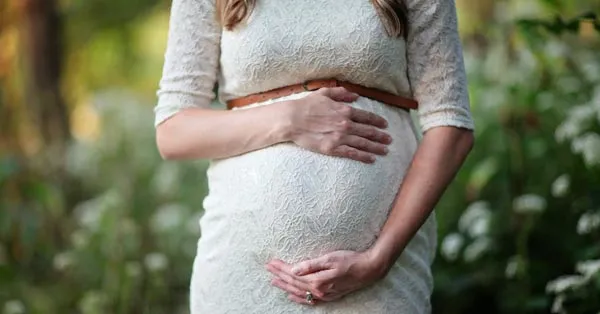What Dental Issues Can Women Face during Pregnancy?
By: Lucy Wyndham, Dental News
Pregnancy brings about many changes in your body, but one which you may not necessarily expect is a change to your oral health. The American Dental Association recommends that all pregnant women visit their dentist before having a baby, to take care of cavities and any pregnancy-related issues that need attending to. Even if you think you are pregnant, you should let us know, since you may need to postpone some treatments.
If you are actively trying to have a baby, check out some of these common dental health issues shared by Dental News, so you can proactively tackle each issue and ensure optimal oral health during pregnancy. The Woodview Oral Surgery Team
Pregnancy and Gingivitis
Inflammation and bleeding of the gums (gingivitis) are common during pregnancy. Changes in hormone levels in your body can cause increased blood circulation to the gum area, thus increasing the risk of bleeding. These changes can also make it easier for plaque to build up on the gumline, thus increasing the likelihood of bacterial infection. It is important to take good care of your gums even before getting pregnant, brushing and flossing at least twice a day (or more), and visiting your dentist for a professional cleaning. Use a salt water rinse to keep gums clean during pregnancy, and try to consume a healthy diet without refined, sugary foods and sweets that promote plaque buildup. Because some medications can be harmful during pregnancy, it is best to avoid infection altogether.
Pregnancy and Tooth Decay
Because plaque can build up more easily on gums and teeth, decay can also arise. Morning sickness (which can include bouts of vomiting) can also promote caries, because it creates an acidic environment that erodes tooth enamel. Oral problems are not only a problem for mothers, but for the baby as well, since issues like periodontitis and serious tooth decay increase the risk of premature birth, gestational diabetes, and preeclampsia - a dangerous condition characterized by high blood pressure, high levels of protein in urine, and swelling in the extremities.
Pregnancy Tumors
Some women develop non-cancerous lumps misleadingly called "pregnancy tumors", which are not actually dangerous. These tiny lumps form between teeth and appear most often during the second trimester. Also called "pyogenic granuloma", they can bleed easily and cause discomfort. Your dentist may recommend removal, but if they do not bother you and you wish to wait, you will find that these lumps disappear on their own once you have given birth.
Looser Teeth
Teeth can become loose during pregnancy even if your gums are healthy, owing to higher levels of progesterone and estrogen, which affect the ligaments that support teeth. Once again, this condition is temporary and does not lead to tooth loss. See your dentist if loose teeth are causing discomfort to ensure that movement is simply hormone-related.
If you are thinking of getting pregnant or you are already awaiting a baby, make your oral health a priority. Changing hormone levels bring about a higher risk of a number of conditions, including increased gum swelling and lose teeth. A good professional cleaning will ensure your gums and teeth are plaque-free and will ensure that any signs of decay or gum disease are treated with pregnancy-safe medications and techniques.
Source: http://www.dentalnews.com/2019/02/14/dental-issues-pregnancy/






5 Stars
based on 48 reviews
5 Stars
based on 15 reviews
5 Stars
based on 11 ratings